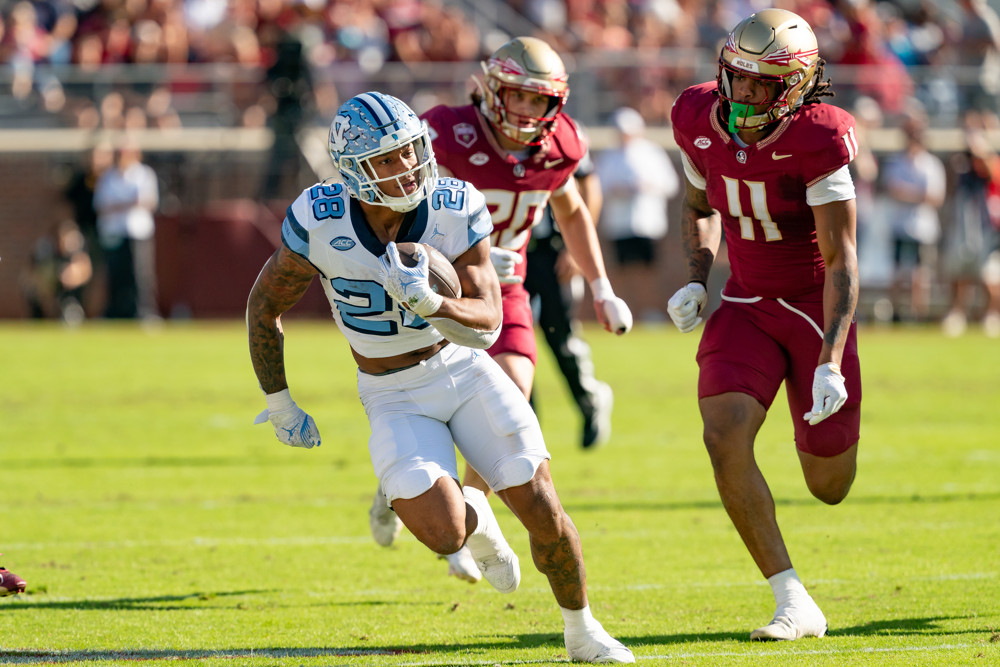By BRYCE ROSSLER
John Elway doesn’t have the best track record when it comes to quarterback evaluation. While he deserves credit for “discovering” four-time NFL MVP Peyton Manning, he’s spent multiple top-60 selections on busts at the position.
The first failed experiment was Brock Osweiler, who eventually retired after the Dolphins decided a better alternative to his services would be to trade a second- and fifth-round pick for a quarterback coming off one of the worst passing seasons in the Total Points era (2016-present). Said quarterback (Josh Rosen) ultimately failed to beat out Ryan Fitzpatrick, who, by the way, has a career average net yards per attempt (5.59) that is just one one-hundredth of a yard below Elway’s.
But, no lessons were learned there. As soon as the Texans outbid Elway’s 3-year, $45M offer to Osweiler in the 2016 offseason, Elway spent a first-round pick on Paxton Lynch. That went so well that Osweiler was welcomed back to Denver in 2017 after playing poorly elsewhere. Osweiler attempted more passes for the Broncos that season than Lynch, who was cut after just two years and spent 2019 as the Steelers’ fourth-string quarterback behind an undrafted rookie out of Samford. Simply put: a competent successor to Manning has proven as elusive to Elway as a 60% completion rate was during his playing career.
Or has it?
Elway used the 42nd overall pick on Drew Lock, who was a late bloomer as a rookie and started the final five games of the season. The Broncos’ 4-1 record in those games has inspired fan confidence in Lock, but impartial viewers may be more skeptical of a five-game sample. Furthermore, Lock’s 6 Passing Total Points/60 Snaps ranked just 22nd among 42 quarterbacks with at least 100 attempts. If we want to excuse his worst performance in a 23-3 loss to Chiefs on account of the winter weather conditions, that Total Points/60 figure jumps to 14 and ranks fifth in the NFL. No matter how you look at it, it’s hard to be sure about Lock entering his second year.
Conversely, it’s easy to see why some people are excited about him. He’s aggressive, flashes plus arm talent, and has the athleticism and creativity to improvise effectively. In just a few games, Lock showed that he was capable of making impressive throws outside the numbers:
Into tight windows:
And on the run:
But, as was the case on this last play, he’s also capable of making things harder on himself than they need to be. His primary read, which was the field out by the motion receiver, was open all the way and he never should have come off of it. The result was the same, but the process was inferior. And on more than one occasion, Lock’s bad process yielded a bad result.
His second career interception is a microcosm of his decisionmaking going into Year 2. It’s 2nd & 10 from the Houston 25-yard line with Denver up 38-14 with 2:47 to go in the third quarter. A field goal here would put the Broncos up four scores and effectively end the game.
The Texans end up in a split-field coverage with what appears to be quarters to the trips side and 2-man on the single receiver side. Lock seems to like the pre-snap matchup Courtland Sutton has and checks the boundary safety (#39), but he either misdiagnoses what the safety’s responsibility is or makes a bad decision to throw this ball. Perhaps he could have gotten away with it if he had been more decisive and hadn’t double-clutched, but the ball was badly underthrown, anyway. The result is an interception which likely took points off the board for Denver.
This is a less egregious error. It’s 2nd & 20 with 3:30 to go in the first quarter, and the Broncos are down 3-0 to the Lions. Detroit is playing Tampa 2 here, and the result is a checkdown to Royce Freeman (No, 28). On paper, this is a 7-yard completion, but it’s really a missed opportunity. Given the depth of the MIKE’s drop, the middle hook area should be vacated, and Jeff Heuerman (No. 82) is consequently open over the ball. Failing to target him isn’t the worst mistake in the world, but neither the WILL nor the weak safety are in a position to cover the dig route by Noah Fant (No. 87). These compounding errors set up a 3rd & long which the Broncos ultimately failed to convert.
Lock was undeniably physically talented coming out of Missouri and that continues to be the case. In spite of some bad process, he was very efficient from a Total Points standpoint when he wasn’t playing in a blizzard. However, his mental processing and decision-making have not yet caught up to his physical abilities, and that’s a recipe for volatility. On top of that, a five-game sample could be high-variance and does little to assuage concerns about the sustainability of his play. There’s only one thing we should be comfortable saying about Drew Lock at this point in time:
He’s a better option than Paxton Lynch.

